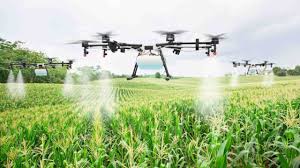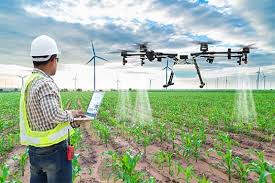Agricultural engineering is the application of engineering principles to any process associated with producing agriculturally based goods and managing natural resources.
The discipline focuses on the development of labor-saving farm machines, farm buildings, irrigation and drainage systems, and processes for preserving and converting agricultural products into useful feed and fiber products.
Contrary to the erroneous understanding of many, agricultural engineering is not synonymous with tractorization. The misconception arises because early engineering interventions in agriculture primarily focused on reducing drudgery through the use of tractors for an extended period.
Read Also: 14 Medicinal Health Benefits of Epimedium grandiflorum (Horny Goat Weed)
The Concept of Agricultural Engineering

Man was provided with a catalogue of materials, both living and non-living, intended to ensure comfort. Recognizing this fact is crucial, as is the expertise to harness relevant materials in engineering to bring about this comfort.
Each human problem and desire requires a unique approach for its solution, which involves the use of different branches of engineering.
These include Building, Civil, Electrical, and Mechanical engineering. Agricultural challenges often require the combined expertise of more than one branch to provide adequate solutions, which led to the emergence of agricultural engineering.
Agricultural Engineering, therefore, involves the application of any or all branches of engineering to farming in all its aspects and to rural living.
Objectives of Agricultural Engineering
The overall objectives of Agricultural Engineering are to provide a conducive working environment for the farmer, to ensure the dignity of farming, to improve the farmer’s economic situation, and to make food available in adequate quantity and quality at the right time and at a reasonable cost to consumers. These objectives are achieved through one or more of the following:
1. Reduction in farm hazards: The causes of hazards are identified, and solutions are provided to ensure that the farmer’s labor is not in vain.
2. Reduction of drudgery in agricultural operations: Agricultural engineering develops machines and equipment that can be used to perform agricultural operations, thus reducing the physical strain on farmers.
3. Ensuring year-round availability of agricultural products: To meet the demand for seasonal crops year-round, they must be processed and stored, necessitating the construction of long-term storage structures.
4. Enhancement of the quality of life for the farmer: Agricultural engineering improves conveniences on the farm, such as farmhouses, good roads, and other amenities.
Read Also: Poultry Record Keeping and Performance Evaluation
Specialization Areas in Agricultural Engineering

Agricultural Engineering encompasses a variety of specialty areas. As new challenges, technologies, and information emerge, specialization areas evolve and overlap with one another. Key areas of specialization in Agricultural Engineering include:
1. Farm Power and Machinery Engineering: This area deals with the design, maintenance, and repair of farm machinery, transport systems, biological material processing machines, and other power units such as water pumps and small engines.
2. Structures and Environmental Engineering: This specialization involves the development of farm infrastructure, such as farmhouses, access roads, animal housing, greenhouses, storage facilities, and water handling systems like dams and canals.
3. Soil and Water Engineering: This area focuses on soil and water conservation, irrigation and drainage system design, and erosion control measures. It ensures soil conservation and enables efficient crop growth while protecting water quality.
4. Crop Processing and Storage Engineering: Over thirty percent of agricultural produce is lost annually due to improper storage and processing. This specialization involves the design, construction, and maintenance of crop processing and storage systems to reduce such losses.
5. Food Engineering: This specialized area focuses on the processes and machinery needed to transform agricultural products into food.
Emerging Technologies in Agricultural Engineering
Agricultural Engineering is undergoing significant changes due to shifts in the global economy and the emergence of new technologies. These technologies include Information Technology, Biotechnology, Environmental Engineering, and Renewable Energy.
Agricultural Engineering is fundamental to agricultural development, and its neglect poses a threat to the future survival of any country.
Many nations experiencing agricultural crises, such as those caused by drought, insect infestations, or inadequate agricultural inputs, could have mitigated these issues with proper agricultural engineering. The profession holds immense potential to solve many problems in agriculture, particularly in developing countries.
Do you have any questions, suggestions, or contributions? If so, please feel free to use the comment box below to share your thoughts. We also encourage you to kindly share this information with others who might benefit from it. Since we can’t reach everyone at once, we truly appreciate your help in spreading the word. Thank you so much for your support and for sharing!
Frequently Asked Questions
We will update this section soon.

